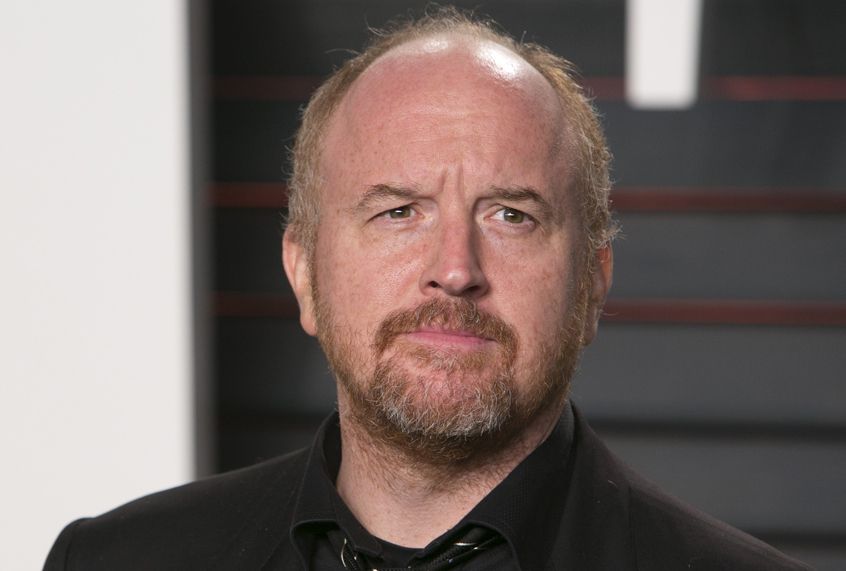In a statement released Friday afternoon, comedian Louis C.K. confessed to the allegations of sexual misconduct leveled against him in an exposé printed in The New York Times Thursday evening.
Writing in the form of an open letter, Louis C.K. admits that he masturbated in front of several women without their consent and, in a manner heretofore unseen amid the deluge of accusations leveled against many men in Hollywood and beyond, following reporting into Harvey Weinstein’s alleged history of abuse, takes nominal responsibility for his actions.
“The stories are true,” he writes, adding:
At the time, I said to myself that what I did was okay because I never showed a woman my dick without asking first, which is also true. But what I learned later in life, too late, is that when you have power over another person, asking them to look at your dick isn’t a question. It’s a predicament for them. The power I had over these women is that they admired me. And I wielded that power irresponsibly.
Louis C.K. continues, writing:
I have been remorseful of my actions. And I’ve tried to learn from them. And run from them. Now I’m aware of the extent of the impact of my actions. I learned yesterday the extent to which I left these women who admired me feeling badly about themselves and cautious around other men who would never have put them in that position.
I also took advantage of the fact that I was widely admired in my and their community, which disabled them from sharing their story and brought hardship to them when they tried because people who look up to me didn’t want to hear it. I didn’t think that I was doing any of that because my position allowed me not to think about it.
There is nothing about this that I forgive myself for. And I have to reconcile it with who I am. Which is nothing compared to the task I left them with.
He adds:
The hardest regret to live with is what you’ve done to hurt someone else. And I can hardly wrap my head around the scope of hurt I brought on them. I’d be remiss to exclude the hurt that I’ve brought on people who I work with and have worked with who’s professional and personal lives have been impacted by all of this, including projects currently in production: the cast and crew of “Better Things,” “Baskets,” “The Cops,” “One Mississippi,” and “I Love You Daddy.” I deeply regret that this has brought negative attention to my manager Dave Becky who only tried to mediate a situation that I caused. I’ve brought anguish and hardship to the people at FX who have given me so much The Orchard who took a chance on my movie. and every other entity that has bet on me through the years.
He ends by writing, “I have spent my long and lucky career talking and saying anything I want. I will now step back and take a long time to listen.”
While a mostly thorough mea culpa, the statement does stand in stark contrast to Louis C.K.’s statements and behavior before the Times’ exposé reached the public — so much so that it must engender a level of doubt and scrutiny.
As recently as September, the comedian was framing any suggestions that he had engaged in the actions he admits to above as baseless rumors, unworthy of comment. It is remarkable that the only difference between then and now is that these same once-unworthy rumors surfaced in the paper of record.
The moral, ethical and emotional dimensions of what he now admits to have done haven’t changed in the last 24 hours, though he claims he has. He says he learned the troubling nature of the power dynamic he used against these women “later in life.” His consistent denial of and failure to engage with the body of the rumors over the last few years throws that statement into doubt. If he had become aware of the gravity of his actions, why exactly did he wait until after the Times report to discuss them?
As well, he claims that his manager, Becky, “only tried to mediate a situation that I caused.” The Times article suggests instead that Becky engaged in an intermittent pattern of suppression, something far different and more nefarious than simple “mediation.” Given the Times’ report, and the outsized fear both seem to have inspired in Louis C.K.’s victims, soft peddling that aspect of this controversy seems disingenuous at best.
Further, it seems Louis C.K. does not truly understand the problem at hand. He notes that one of the mitigating factors against his victims coming forward is that he “was widely admired” in the comedy community. To be clear, this is not a question of talent or respect, but one of professional power. To couch the women’s “predicament” as a result of how well they and others regarded him is to show a complete and perhaps dangerous misunderstanding of the very reasons women in such situations worldwide keep such stories private. It also suggests that Louis C.K. wants to frame his trespasses and the silence that followed them as somehow different than the allegations against, say, Weinstein or Kevin Spacey, who have also been accused of targeting people who worked in entertainment, usually of a lower level of influence or hiring power.
Yes, it is remarkable that someone, anyone, on the growing list of high-profile men accused of sexual abuse would raise their hand and claim any level of responsibility. Yet, considering Louis C.K.’s actions up until this point, it seems very far from praiseworthy. As well, given that HBO, Netflix and the producers of his own film “I Love You, Daddy” are running away from the suddenly radioactive comedian, it seems as if it might be quite some time before this apology engenders any level of forgiveness or grace from the industry or the public.

